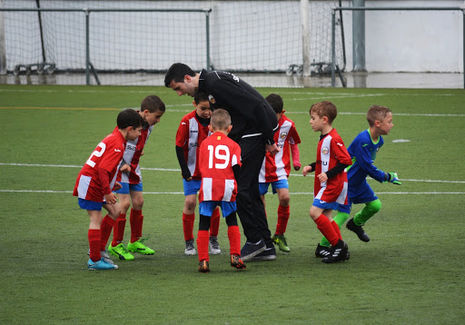Study links physical activity to children’s academic attainment
Cambridge researchers have found that physical activity could reduce the achievement gap between wealthy and less-privileged pupils

A new study by Cambridge researchers at the Faculty of Education has found that increased opportunities for physical activity could support children’s academic attainment, and decrease the achievement gap between wealthy and less advantaged pupils.
The researchers found that children who do more physical activity have greater abilities of self-regulation. This allows children to better manage their emotions, take responsibility for actions, and manage their behaviour to achieve a goal.
The link between academic attainment and physical activities was found to be especially pronounced among disadvantaged children. The researchers suggest that this may be because less privileged children have fewer opportunities to engage in organised outdoor activities, and so experience stronger benefits when they do so.
Dr Michelle Ellefson, one of the paper’s co-authors, stated that “in the context of COVID in particular, there may be a real temptation to encourage schools to maximise classroom time to stop children falling behind.”
Ellefson added: “This study is saying ‘think again’, because playtime and PE lessons benefit the mind in ways that children really need in order to do their best.”
The study analysed data collected from a cohort of over 4,000 children in England as part of the Millenium Cohort Study, which follows the lives of 19,000 young people born in the UK between 2000 and 2002.
The benefits of physical activity for academic progress varied by age group. With students of age seven, the researchers found that doing sport helped improve children’s emotional self-management. For pupils aged 11 and onwards, the main benefit of physical activity was on the children’s management of their own behaviour in order to attain a goal.
“Research examining the links between physical activity and attainment has produced mixed findings,” said Fotini Vasilopoulos, who led the study, “but there is a positive, indirect relationship because of the impact on mental processes like self-control”.
Vasilopoulos continued: “The attainment gap is a really complex problem, but we know that some of it is linked to less-advantaged children having poor self-regulation skills early in childhood. Physical activities that help them to do things like focus on a task or maintain attention could be part of the way to bridge that gap.”
 News / Report suggests Cambridge the hardest place to get a first in the country23 January 2026
News / Report suggests Cambridge the hardest place to get a first in the country23 January 2026 News / Students condemn ‘insidious’ Israel trip23 January 2026
News / Students condemn ‘insidious’ Israel trip23 January 2026 News / Cambridge ranks in the top ten for every subject area in 202623 January 2026
News / Cambridge ranks in the top ten for every subject area in 202623 January 2026 News / Uni denounced for bypassing ‘democratic structures’23 January 2026
News / Uni denounced for bypassing ‘democratic structures’23 January 2026 Comment / Cambridge has already become complacent on class23 January 2026
Comment / Cambridge has already become complacent on class23 January 2026










